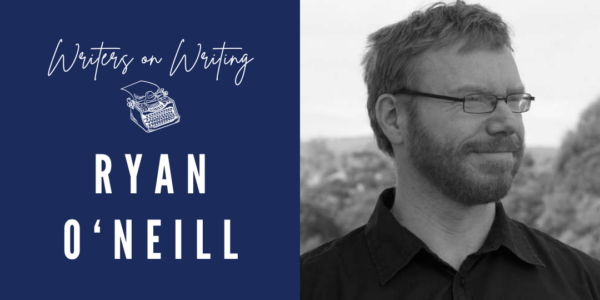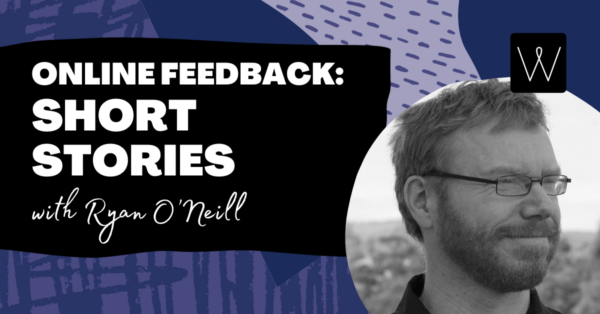
Writers on Writing is our regular conversation with a writer or industry professional about the writing craft, industry insights, and their own practice. This week, we spoke to Ryan O’Neill about the power of short stories, his top picks, and the best writing advice he’s ever received.
Why write short stories? What can they achieve that a novel perhaps cannot?
I think some people believe that a short story writer is simply a novelist wearing L plates, that writing short stories is merely an apprenticeship for writing novels. This is not true; short stories have their own unique form, their own unique beauty, and present their own unique challenges. Though the short story is most certainly not just a training ground for a would-be novelist, it’s true that it is the perfect form to develop the essential skills of writing, such as characterisation, plot and setting. Above all, the length of the short story teaches discipline and economy in expression. Writing a novel is like flying a 747, with plenty of time for take-off, flight and landing. Writing a short story is like trying to get a plane off the ground as you are in the process of building it. It teaches a writer all kinds of skills.
The short story offers a unity that the novel can never have, simply because of its length. The writer (and the reader) can hold the entire world of the short story in their mind at once. This makes the experience of writing (and reading) a great short story immensely powerful. I agree with J.G. Ballard who said that there had never been any perfect novels, but there had been perfect short stories.
When writing a short story as part of a collection, do you write with the collection in mind?
I’ve never written a story with the thought of it being part of a collection. Instead, I write a lot of stories, and then for a collection select the ones I think are the best, and that complement each other. Of course, this is different if the intent is to write a “novel in stories” or linked collection, where the stories may be related by setting, plot and character (or all three) in which case the writing of each individual story would be heavily influenced by its place in the collection as a whole. This is a very different writing experience. (For a great example of how well a novel-in-stories can be done, see Laurie Steed’s You Belong Here.)
Are there any short stories you’ve enjoyed recently?
‘Reality Quest’ by Andrew Roff is wonderful: a short story in the form of a computer text adventure game that miraculously manages to be funny and moving. I recently reread Cate Kennedy’s ‘Cold Snap’ which I think is a brilliant example of a writer conjuring an unforgettable plot, characters and setting in just a couple of thousand words. I’m also a huge fan of Wayne Marshall’s short fiction, which somehow manages to be both deeply Australian and deeply strange at the same time, as in his marvellous ‘A Night Out.’
Lastly – what’s the best piece of writing advice anyone has ever given you?
I’ve always found Ernest Hemingway’s observation that “The first draft of anything is shit” to be extremely helpful, as reading a first draft can be so disheartening. It’s essential to remember the first draft will not be any good, and that’s fine, because you are going to rewrite and rewrite and rewrite, and each draft will be better, and get your story closer to where you want it to be. A good short story is not written; it’s rewritten.
Ryan O’Neill is the author of The Weight of a Human Heart and Their Brilliant Careers. Born in Glasgow, he lived in Africa, Europe and Asia before settling in Newcastle, Australia, with his wife and two daughters. His fiction has appeared in The Best Australian Stories, The Sleepers Almanac, Meanjin, New Australian Stories, Wet Ink, Etchings and Westerly. His work has won the Hal Porter and Roland Robinson awards and been shortlisted for the Queensland Premier’s Steele Rudd Award and the Age Short-Story Prize. His latest book, Their Brilliant Careers, won the 2017 Prime Minister’s Literary Award, and was shortlisted for the 2017 Miles Franklin Award.
Join Ryan’s course, Online Feedback: Short Stories, Monday 4 March to Friday 17 May 2024, online.
If you want to be the first to read great advice, prompts and inspiration from our incredible tutors, subscribe to our weekly e-newsletter Newsbite.
More from Writing NSW
Check out our full range of writing courses in Sydney, our online writing courses and our feedback programs to see how we can help you on your creative writing journey. Find out about our grants and prizes, as well as writing groups across NSW, and sign up to our weekly newsletter for writing events, opportunities and giveaways.

